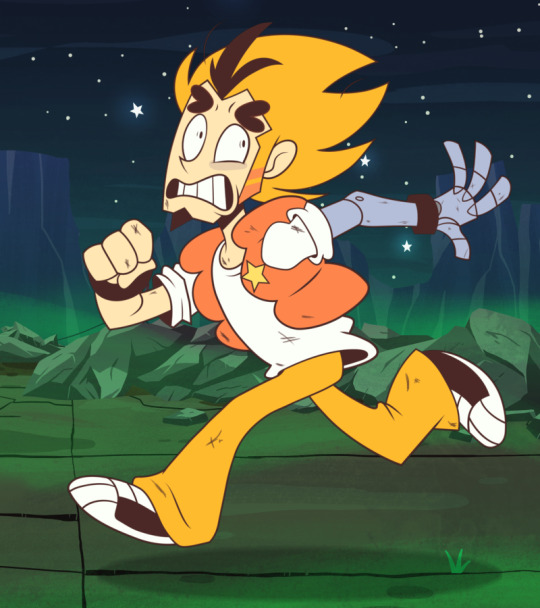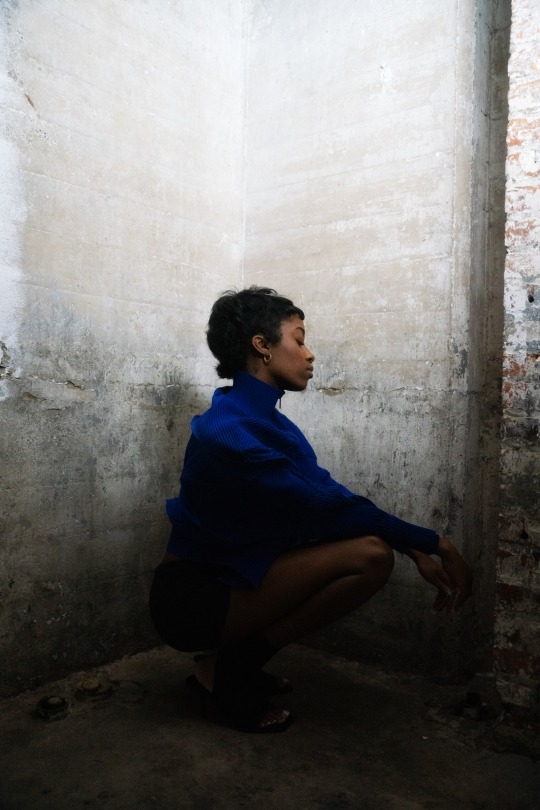#video production
Explore tagged Tumblr posts
Text

Mystery Skulls Animated Monthly Updated Hey everyone, apologies for missing out on last month, but it's time to get a new update out the door from our team about the production so far for video 5. Unfortunately we don't believe we'll be able to have the video ready in time for a October release. People's schedules have not lined up in such a way where we have the momentum to finish things up for this month. In particular, background art has been difficult to get in due to artist availability. We do have layouts ready for most of the backgrounds at the moment, it's just a matter of getting fully cleaned up versions of them. At the very least we still want to give you another animated gif and to sincerely apologize for not being able to bring the video to you this month for the 10th anniversary. We know everyone has been waiting a long time and we'll do our best to keep pushing and get this animation out the door as soon as we can. Full Patreon Post: CLICK HERE
#mystery skulls#mystery skulls animated#msa#animation#gif#arthur kingsmen#msa arthur#msa murder mystery#murder mystery#kitsune#video production#production update
7K notes
·
View notes
Text
throw back to when i made a commercial for the garfield phone in my video production class!
#garfield#garfield phone#garfield collecting#garf#garfie#vintage garfield#80s#novelty phone#videography#commercial#video production#my garfs#had sooo much fun bringing garf to the fancy studio they had lol#theres a version with no text somewhere on my old drive too... i had to add it for the assignment but i also love the visuals w/out it
14 notes
·
View notes
Text
So I went out in a limb and posted my first YouTube video.
I’m going to go out and try and show my work to those who might enjoy it.
I’ve always been obsessed with Interview with a Vampire by Anne Rice and decided to break down the book to screen adaptation. I used examples from the book to see if the show keeps true to the characters.
I don’t have any other social media but I really wanted to share my work.
If any of you do decide to watch it, of course you don’t have too but if you do… please tell me what you think. I’m open to criticism and improving. I know it’s the internet and maybe I’m throwing rocks down a dark tunnel but please be kinda nice but I appreciate honesty above all else.
Thank you internet void. (:
youtube
#Louis#interview with a vampire#my writing#reviews#louis de pointe du lac#lestat de lioncourt#scriptwriting#video production#fantasy#vampire aesthetic#gothic#gothic fiction#analysis#book review#bookworm#books and reading#book quotes#creative writing#claudia#sam reid#jacob anderson#bailey bass#anne rice#interview with the vampire#vampire chronicles#videopromotion#youtube#overanalyzing#black goth#dark academia
23 notes
·
View notes
Text

Dreamweapon
#glitch gear#video synth#analog gear#video art#glitch#synth#vj gear#video production#tachyonplus#glitch art#effects pedal#analog glitch
28 notes
·
View notes
Text



I’ve been working on a video for Mission: Impossible - Rogue Nation. I’m making editing progress this week, but no projected release date yet. I had some setbacks in shooting it last week with an odyssey to replace one of my light bulbs in my camera setup (thank goodness for Flicker Free LED bulbs). I really love covering this franchise, and I hope everyone enjoys what I have to say about this one! Hard to believe it came out a decade ago!
9 notes
·
View notes
Text
MY FRIENDS AND I RECREATED THESE SCENES FROM VICTORIOUS
#victorious#jade west#beck Oliver#cat valentine#Tori Vega#robbie shapiro#andre harris#breakfast club#2000s#2010s#nostalgia#film#recreation#acting#college#actors#mine#video production#Nickelodeon#Ariana grande
12 notes
·
View notes
Text










A collection of video production setups.
#interesting#interesting facts#discover#thats interesting#thats incredible#thats insane#like woah#woah#woah dude#woah :0#video#videos#video production#production#setup#setups#whatthe#what the#what the fuck#what the hell#what the heck#what the flip#technology#woahhhh#but woah#woahg#woah woah woah
15 notes
·
View notes
Text

Hey everyone, it's time for the monthly Mystery Skulls Animated video update!
Mysteryben has a family trip coming up to Japan, so this will account for this month's and next month's update at the moment while he's away. We wanted to make sure to give you guys a close to completed scene screenshot to gander at in the mean time with character and background art compiled together, minus some final polish! We're pretty excited to finally be at this stage now that we're getting consistent background art turned in. Still plenty to do, but it's really feeling a little more real each day. :D
Full patreon update: CLICK HERE
#mystery skulls#mystery skulls animated#msa#msa arthur#video production#production update#Arthur you can only run away from your problems for so long lol#I kid I kid#or am I#who knowsssss
2K notes
·
View notes
Text

324 notes
·
View notes
Text
youtube









Wonderful I could cry and die
@len0r

#ez3kiel#im freaking the fuck out#visuals#video production#Video projects#Opera#video art#mythology#epic#x-heesy#fucking favorite#now playing#music#music and art#YouTube#slow dancing in the dark
4 notes
·
View notes
Text
I'm starting to go through different channels I usually watch and notice quiet background music that I didn't use to notice. I mean, of course there are some that were obvious and in your face like MandJTV with the Mirror B theme, but I'm starting to notice it more in all channels I watch rather than just that subset of obvious cases.
#youtube#video#video production#music#mandjtv#pokemon#background music#questions#question#ask tumblr#tumblr polls#poll#my polls#youtuber#content#content creation#content strategy
5 notes
·
View notes




